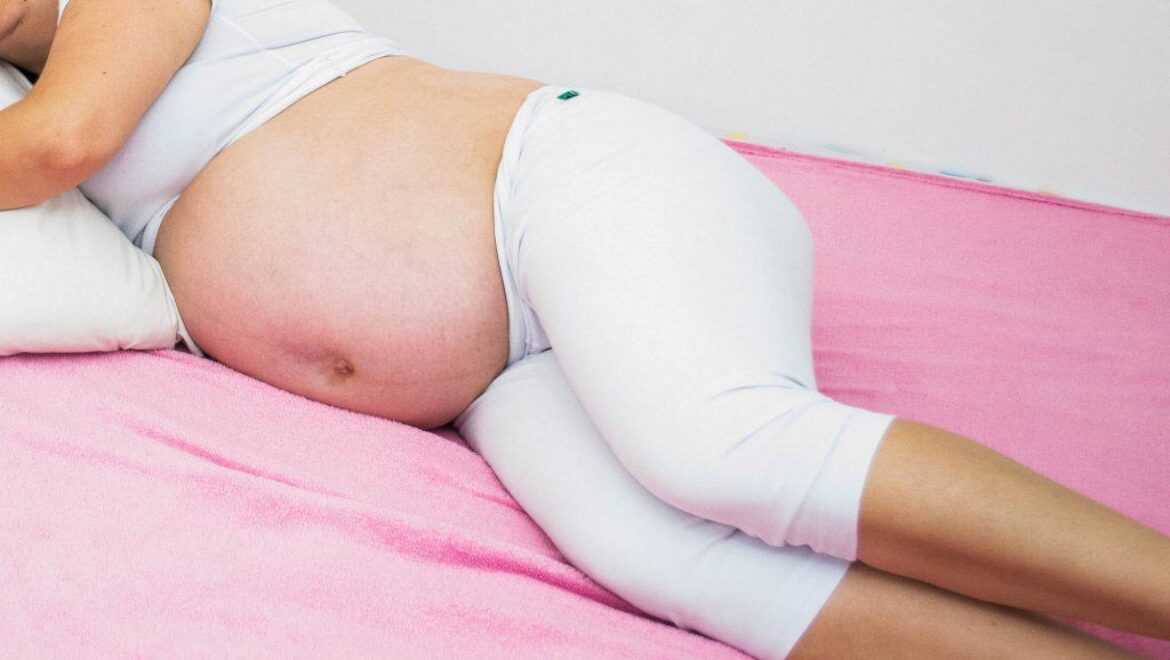
Sadly (and painfully) the labia, vulva, and vagina can, and often do, swell as pregnancy progresses. This is usually completely normal, and in many cases there’s not a lot that can be done about it.
The first thing to consider is whether your swelling lady parts is purely a pregnancy related symptom or something more general to women’s health.
The same things that can cause the area to swell when a woman is not pregnant will still cause it to swell when she is.
Common Reasons for Swelling When NOT PREGNANT Include:
- yeast infections
- some sexually transmitted infections
- allergic reactions
- sexual intercourse
So your swelling could be due to one of these reasons, especially if you’ve been experiencing increased libido alongside those pregnancy hormones.
Rule Out an STD
To further complicate self-diagnosis (which is generally a bad idea anyway) normal vaginal swelling due to pregnancy can also cause itching and pain, two symptoms that generally point towards more serious conditions.
Vaginal discharge, a third indicator, is also increased in pregnancy.
A strong smell to your vaginal discharge, rashes or bumps however aren’t a symptom of pregnancy, and need to be reported to your physician immediately.
The good news is in a monogamous relationship, the chance that it is a sexually transmitted infection is rare, especially since you were probably tested for a wide range of them at your first prenatal appointment.
Other causes not related to pregnancy such as a yeast infection are unpleasant but easily treated and unlikely to interfere in an otherwise normal pregnancy.
You’re going to need to have your doctor take a look at it, just to be sure.
Is swelling down there normal in pregnancy?
Yup.
It’s one of those things that no one ever talks about, but A LOT of women experience.
So the most likely scenario is that you are experiencing normal swelling caused by increased blood flow to ALL of your reproductive organs. This can start as early as eight to twelve weeks, but is generally worse later in your pregnancy.
As your baby grows, the extra weight can put pressure on the veins in the area, making it harder for the blood to leave the area.
This pressure can lead to what is termed vulvar varicosities.
This can cause lumps (your veins) to protrude in the vulva which are very itchy, sore and painful. Fortunately for most people they go away shortly after delivery.
If you think this might be the cause of your swelling, do get it checked out.
Support Band for Vulvar Varicosities
Also consider getting yourself a special support band like this one from babybellyband. On top of providing support and comfort if you’re suffering from vaginal varices or vulval varicosities, it provides help for a number of other common pregnancy complaints such as Pubic Symphysis Dysfunction (SPD) and abdominal, hip and back pain.
Make it feel better – Now!
So now that you know your swelling is normal and probably harmless, your mind should be at ease. That does absolutely nothing to help your girl parts, however.
First and foremost, I would strongly advise against putting anything unusual on your vulva or labia and especially inside your vagina unless your doctor specifically advises it.
This includes home yeast infection cures, douches, salves etc.
At best, they probably won’t help anyway, at worst they may have a chance of causing harm.
Get Your Feet Up
Your best bet is to get your feet up as often as possible. This should help even out circulation and relieve some of the pressure. In the same vein, try wearing loose clothing, especially underwear.
If modesty and your living arrangement allows it, sleep without anything at all from the waist down. You could even try aiming a fan at the area. Don’t worry, it won’t catch a cold.
Cool Her Down
Cool baths may give some temporary relief. Ice packs might as well, but be sure to keep a layer of cloth between the ice and the tender skin of the vulva and labia.
I can’t imagine anyone voluntarily putting ice inside their vagina, but you probably shouldn’t do that either.
It might also help to wipe with hypo-allergenic baby wipes instead of rough toilet paper. Storing them in the refrigerator until use could provide some extra relief, but may not be for the faint of heart.
Remember to make sure your doctor is the first port of call if you have selling in your vulva, vagina or labia and get an expert diagnosis.
Are you experiencing swelling in your lady parts?
Let us know how you’re dealing with it in the comments section below.

Sources:
- https://www.self.com/story/swollen-vulva-vagina
- https://parenting.firstcry.com/articles/vaginal-swelling-during-pregnancy-causes-symptoms-and-treatment/
- https://www.whattoexpect.com/pregnancy/symptoms-and-solutions/labia-changes-during-pregnancy-and-childbirth/
- https://www.healthline.com/health/womens-health/swollen-vulva
- https://www.mayoclinic.org/healthy-lifestyle/pregnancy-week-by-week/expert-answers/vulvar-varicosities-during-pregnancy/faq-20419426
